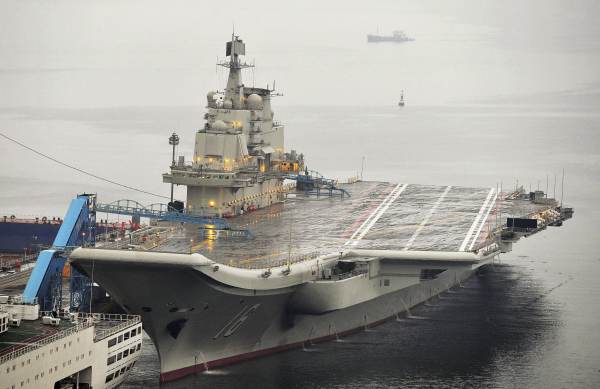China’s defence minister on Friday sought to soothe concerns over the country’s growing armed forces, saying its military modernization is rooted in both past humiliations and a present need to combat threats including terrorism.
“The remarkable growth of China’s comprehensive national power, and the continued progress in national defence modernization, have become a focus of international attention in recent years,” General Chang Wanquan said in a speech.
Among the reasons he cited for the makeover were China’s “wretched modern history” as a victim of aggression and the “practical need to secure its own territory”, catch up with other militaries and cooperate internationally to combat “terrorism, extremism and separatism”.
China’s military “lags far behind those advanced military forces elsewhere in the world,” he added in the address at a conference sponsored by the China Association for Military Science.
China has consistently stressed that the growth and modernization of its armed forces — the world’s largest by manpower, with approximately 2.3 million active duty troops as of last year — pose no threat to any other countries or international order.
But Beijing’s growing assertiveness over territorial disputes in the East and South China seas has stoked concerns, as have commentaries in official media questioning the decades-long security role of the United States in the region.
Chang’s speech came a day after a US commission warned that potential China-US military confrontations risk escalating into a “major political crisis”, amid Beijing’s maritime disputes with Japan and the Philippines, both US allies.
Increased Chinese military spending and the country’s expanding naval capabilities are among developments “enabling China to challenge decades of air and naval dominance by the United States in the Western Pacific”, Dennis Shea, chairman of the US-China Economic and Security Review Commission, told reporters Thursday.
Chang spoke at the Fifth Xiangshan Forum, a military affairs conference Beijing has hosted every other year since 2006 and is upgrading to a higher-level dialogue in which defence officials also participate alongside scholars and experts.
Besides Chang, other defence ministers attending included those from Malaysia, Kyrgyzstan, Serbia, Singapore and Tajikistan.
South Korea sent its deputy defence minister for policy, while Chinese ally North Korea appeared not to have dispatched anyone, based on a list of delegations distributed to participants.
No current US Department of Defense officials were included on the list, though at least one uniformed military attache from the US embassy in Beijing was present.
Gary Roughead, a retired admiral who during his career served as chief of US naval operations as well as commander of the US Atlantic and Pacific fleets, attended the conference.










